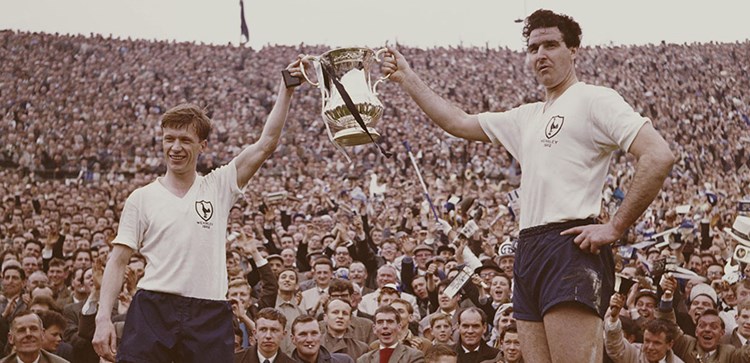
Maurice Norman: The 'gentle giant' from Norfolk who became a Spurs legend
Wed 22 January 2020, 10:06|
Tottenham Hotspur
It's 65 years since one of the all-time Spurs greats switched Norfolk for N17.
Maurice Norman joined us from Norwich City in November, 1955. That number five is quite pertinent in his story. He wore it with pride as Bill Nicholson's team swept all before them in the early 1960s, winning the league and FA Cup double in 1960/61, retaining the FA Cup in 1962 and becoming the first British team to triumph in Europe with our Cup Winners' Cup success in 1963.
Maurice went on to make 411 appearances for us between 1955-65, placing him 11th on our all-time appearance list and still one of only 11 players to make over 400 appearances for the Club. He was also capped 23 times by England and made both the 1958 and 1962 World Cup squads. Sadly, he was forced to retire after a serious injury sustained in 1965, 55 years ago.
Maurice is now 85 and we can happily report 'ticking over nicely', according to his wife Jacqueline.
It all started for Maurice on the village green in Mulbarton, Norfolk. He was spotted by a Norwich City scout playing - up front - in a cup final for Wymondham Juniors. He signed professional forms aged 18 in 1952 and just 35 games into his career at Carrow Road, Spurs came calling.
Taken from extracts of a special interview to mark Maurice's 80th birthday in 2014, here is how the youngster fondly nicknamed 'Swede' by his team-mates went on to become a legend at the Lane.
When did you find out about Spurs' interest?
Maurice: "I only knew about Spurs' interest in me when I was called into Tom Parker's (Norwich manager) office. He advised me to take the offer - a transfer fee of £18,000 plus a swap with Johnny Gavin, who wanted to return to Norwich. Tom Parker said he needed transfer money to build floodlights as at the time, Norwich did not have any. It was a complete surprise to me. I was enjoying playing for Norwich and my Dad always watched me from the terraces."
Was it a surprise, as you'd only played 35 games for Norwich?
Maurice: "As I said, a complete surprise. I felt a little anxious. Would I be good enough? It was strange to be leaving the village and the countryside, but I was also excited about the future."
Can you remember your first visit to White Hart Lane?
Maurice: "My first visit to White Hart Lane and my first match was on November 11, 1955 against Cardiff City. I had to travel up by train, then catch a bus and find my way to the ground. Until then, I had never been to London and it was very strange finding my way around. Then, when I walked into the dressing room for the first time and saw the other players, many of whom were internationals, I really wondered what I was doing there! I really was overawed."
How did it feel to pull on our famous white shirt for the first time?
Maurice: "I was so overawed by the players around me. They all shook hands with me and wished me well. I changed beside the legend that was Ted Ditchburn, one of the greatest goalkeepers of all time and a true gentleman - we kept in touch until he passed away. Bill Nicholson and Eddie Baily were also in the team that day."
You eventually moved position to centre-half in the 1956-57 season. How did you find the change of position?
Maurice: "I felt I had really arrived into the position I had always been meant to play and I began to really enjoy my football. I know my performances improved. But I would always play full-back if the manager required me to do so."
When did you know the double team had something special?
Maurice: "I suppose it all started when we managed some great results at the beginning of the 1960-61 season, winning our first 11 matches. Danny Blanchflower had said that we could have done it the season before. We all seemed to be in tune with each other and we enjoyed being together - like one happy family. With Bill Nick at the helm and Danny's captaincy and tactics on the field, we felt almost invincible!"
What was it like to play behind two fellow greats of the game - Danny Blanchflower and Dave Mackay?
Maurice: "I learnt so much from Danny, coming in from Norwich to play behind and with one of the greatest technical brains in football at that time helped to refine and stabilise my game. Danny helped me by always talking to me, explaining the finer points and had taken me 'under his wing' from the beginning. Playing behind both Danny and Dave, both attacking wing-halves, at times left space around me so I would fall back in line with our full-backs Peter Baker and Ron Henry to defend Bill Brown in goal. Dave was so dynamic, strong and forceful that you felt safe behind him."
How would you sum up that period - the double in 1961, the FA Cup in 1962 and European CWC in 1963? What was it like to play for Spurs at that time?
Maurice: "What can I say about that period in the club's history? I think we felt almost invincible. We rarely looked at a team sheet to see who we would be playing because we had only used 15 players during those seasons. It seemed that continuity played a large part in the team's success."
Unfortunately, you were forced to retire after breaking your leg, eventually calling it a day at the age of 33. What do you remember about the injury? It must have been a huge blow. Can you remember how it felt to be told 'that's it'?
Maurice: "During a friendly match at White Hart Lane in November, 1965, I broke my leg badly. The bones in my lower leg were smashed. I was taken to local hospital and put in plaster and a month later, I came home to a bed downstairs on complete bed rest. This meant never getting out of bed, no crutches and my children - Michael (then three years, three months) and Johanna (eight months) - were quite confused by all this. Jacqueline, who had been a nurse before we married, was able to look after me. Cecil Poynton (physio) came to exercise my good leg three times a week. After almost a year when the final plaster was removed, my leg was deformed, much shorter and very ugly. Bill Nicholson arranged for me to see a consultant in Harley Street who said I needed to have two bones in my lower leg re-broken, one higher and one lower than the original injury and for chips of bone from my pelvis to be grafted on to the front of my leg. I needed such a radical operation because my my leg was one and a half inches shorter than it should have been and because I did not want to limp. I had already begun to have problems with my spine and the consultant was worried about paralysis in later life. So I underwent the operation and after a couple of weeks I was allowed up and about on crutches, eventually out of plaster (this was now the summer of 1967) and I was as good as I'd ever be. But it was already over two years and I was never going to be able to play again, even the consultant said there was no way. I cannot put into words how it felt. My football life was gone."
How do you look back at your fantastic career?
Maurice: "Naturally, I look back with a lot of pride. To have had 12 years with Spurs and all the success. To have played for my country and achieved 23 England caps. To have travelled and seen some of the good and the bad in the world. I have played on Copacobana Beach with the local lads and have walked up to the top of the mountain upon which the statue of Christ stands in Rio. I've passed through 'Check Point Charlie' from West to East Germany when the 'wall' was still there and seen the places where people died trying to escape to freedom in the west. I've seen and played inside Russia, seen Red Square, the Kremlin and St Basil's Cathedral. I've seen how people have to live in such poverty, been accosted by people asking for money or clothes and seen Armies and Police on the streets with guns, never being allowed out of our hotels alone. I enjoyed Israel but could hear the war guns over the valley and in South Africa, we were told not to leave our coach should it break down in any of the Townships. I feel extremely fortunate to have achieved so much from being born in a village cottage to have gone right to the top of my chosen career. My only sadness is that I would have loved to have returned to Norwich and finished my career with them. I suppose I'm still a Norfolk countryman at heart."








